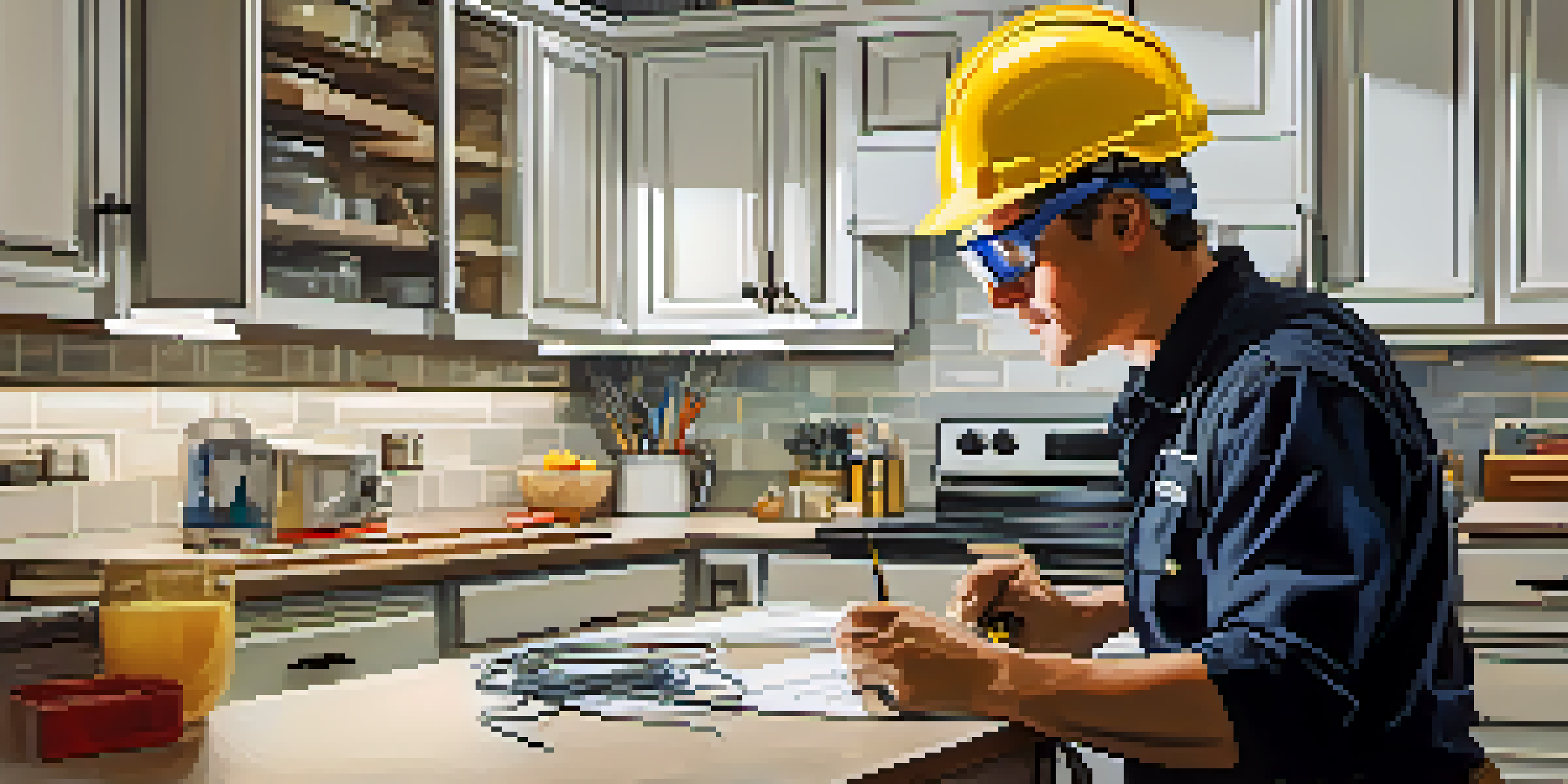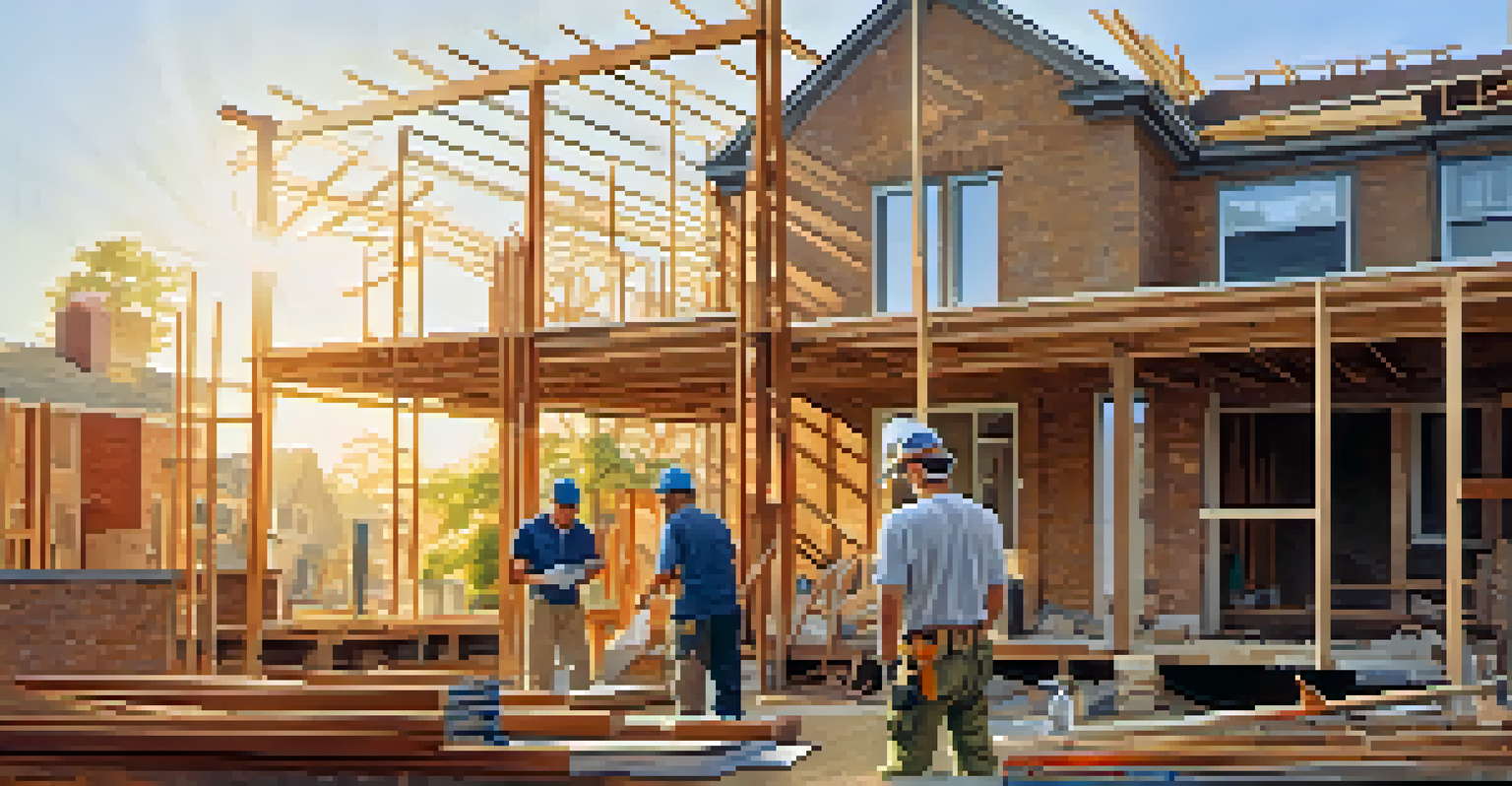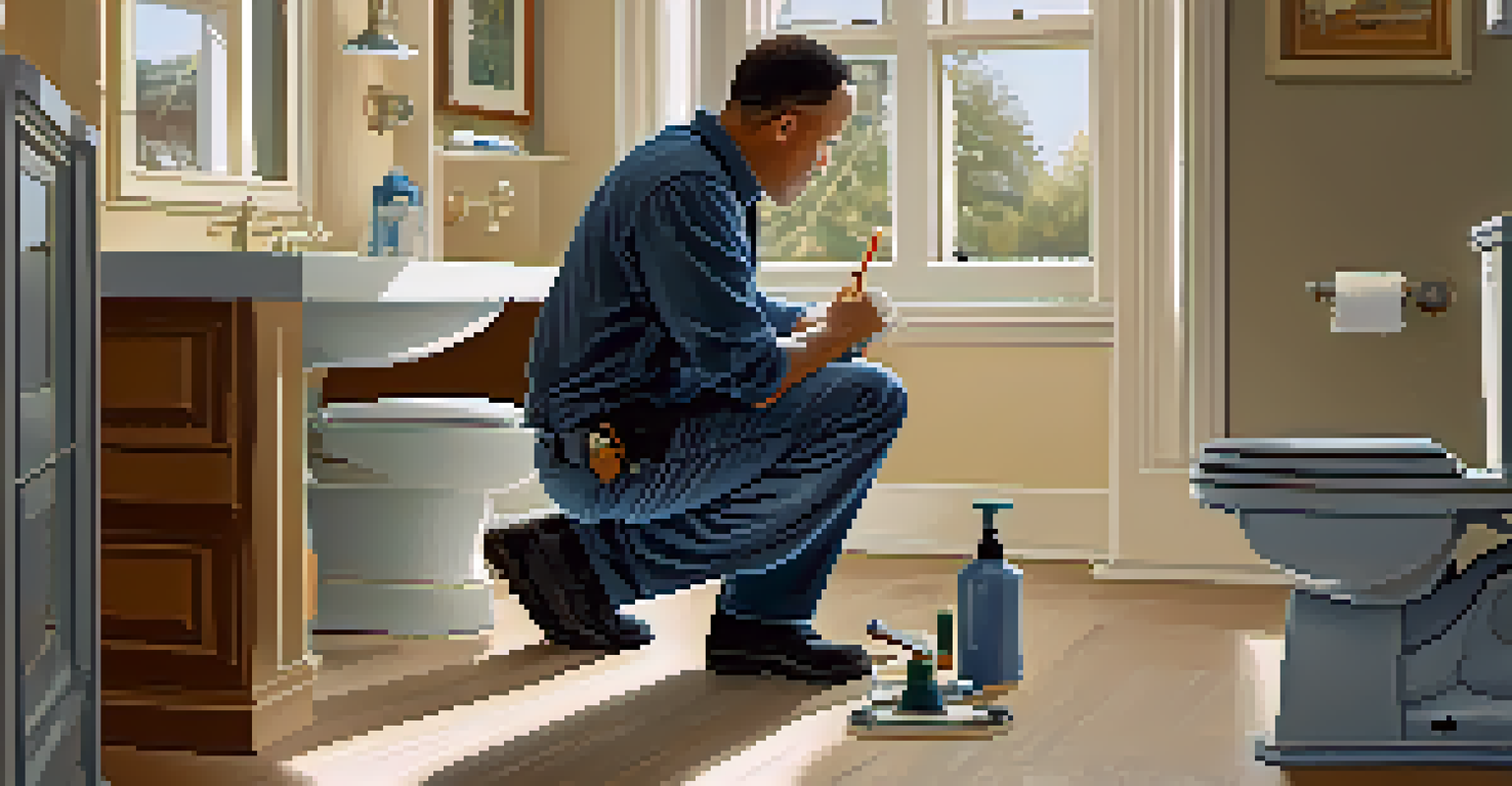How Inspections Ensure Compliance in Home Renovations

Understanding the Role of Inspections in Renovations
Inspections are a crucial part of the home renovation process. They serve as checkpoints that ensure the work done meets local building codes and safety standards. Think of inspections as a quality control mechanism that protects homeowners from potential hazards.
An ounce of prevention is worth a pound of cure.
When homeowners decide to renovate, they often envision stunning outcomes without considering the underlying processes. Inspections help bridge that gap, ensuring that every layer, from electrical wiring to plumbing, is not only functional but also safe.
Without inspections, renovations could lead to serious issues down the line, such as structural failures or safety hazards. In essence, inspections are there to safeguard your investment and ensure peace of mind for you and your family.
Legal Compliance: Why It Matters
Building codes are established by local authorities and are designed to protect residents. Compliance with these codes is not just a suggestion; it's a legal requirement. Failing to follow these regulations could result in fines or even having to undo the renovation work.

By adhering to legal requirements, homeowners not only avoid penalties but also ensure their renovations are safe and reliable. This means you can enjoy your new space without worrying about future legal issues.
Inspections Ensure Safety Standards
Inspections serve as essential checkpoints that confirm renovations meet local building codes and safety regulations.
In this context, inspections play a vital role, serving as a formal verification that all work is up to code. They provide a safeguard against unqualified work that could compromise the safety and longevity of your home.
The Inspection Process: What to Expect
The inspection process can vary depending on the scope of your renovation. Typically, it involves several stages, including initial assessments and final evaluations. During these visits, an inspector will assess various aspects, such as structural integrity and safety measures.
Quality means doing it right when no one is looking.
Homeowners are usually required to schedule inspections at specific points in the renovation timeline. For example, an inspector may need to check the plumbing before walls are closed up, ensuring that everything is correctly installed.
Understanding the inspection process can help alleviate concerns and streamline your renovation experience. Knowing what to expect allows you to prepare adequately and ensures that your project stays on track.
Common Areas Inspected During Home Renovations
When it comes to home renovations, certain areas are more likely to be inspected than others. Common focus points include electrical systems, plumbing, framing, and insulation. These components are essential for the safety and functionality of your home.
For instance, an inspector will check electrical wiring to ensure it meets safety standards and is not at risk of short-circuiting or fire. Similarly, plumbing inspections confirm that pipes are properly installed and free from leaks.
Legal Compliance Protects Homeowners
Adhering to building codes through inspections helps homeowners avoid legal penalties and ensures their renovations are safe.
By focusing on these critical areas, inspections help identify potential issues early on. This proactive approach can save homeowners from costly repairs and ensure a secure living environment.
How Inspections Protect Homeowners
Inspections protect homeowners in multiple ways, primarily by identifying potential hazards. For example, a hidden structural issue might not be apparent during renovations but could cause significant problems later on. Inspections help uncover these issues before they escalate.
Another key benefit is that inspections can enhance the overall quality of workmanship. Knowing that an inspector will review their work encourages contractors to adhere to best practices and deliver high-quality results.
Ultimately, having the assurance that your renovation meets safety standards gives homeowners peace of mind. This layer of protection is invaluable, allowing you to enjoy your newly renovated space worry-free.
The Cost of Inspections: An Investment in Safety
While homeowners may view inspection fees as an added expense, they are actually an investment in safety and compliance. The cost of a typical inspection is often minimal compared to the potential costs of unsafe renovations or legal penalties.
Moreover, inspections can help avoid unexpected future repair costs. By catching issues early, homeowners can address them promptly, saving money in the long run.
Investment in Inspections Saves Money
While inspection fees may seem like an extra cost, they prevent potential hazards and costly repairs in the future.
In this light, the cost of inspections is not merely a fee but a small price to pay for the security and assurance that your home is safe and well-constructed.
Working with Inspectors: Building a Collaborative Relationship
Building a positive relationship with your inspector can enhance the renovation process. Open communication allows for better understanding and can lead to more thorough inspections. Don't hesitate to ask questions or request clarifications during the process.
Moreover, inspectors can offer valuable insights and advice based on their expertise. This information can help you make informed decisions about your renovation, ensuring that everything aligns with safety standards.

By fostering a collaborative relationship, homeowners can ensure that their renovation journey is smooth and successful. Remember, inspectors are there to help you achieve a safe and compliant home.